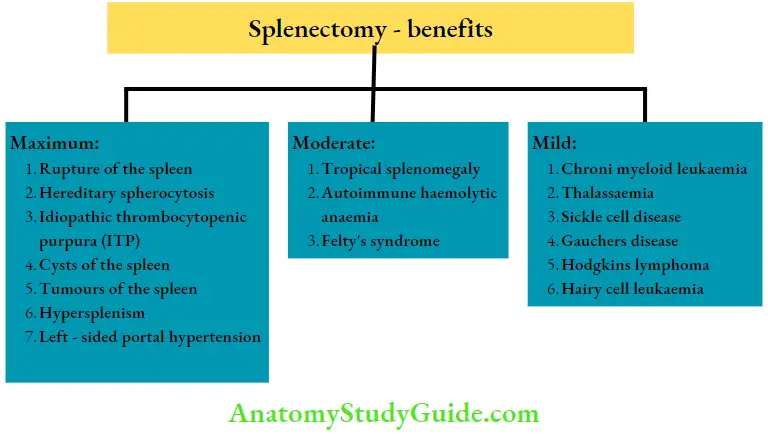OPSI
Describe the post-splenectomy sepsis—prophylaxis.
OPSI Definition: It is a generalized non-specific flu-like prodrome followed by rapid deterioration to serious full-blown fulminant septic shock within 24–48 hours of the onset. It is also called as Post splenectomy sepsis
OPSI Introduction: It is a medical emergency and if it not treated, cardiovascular collapse and death can occur. OPSI has high mortality rates. Fever, body aches, and myalgia chills are a few features of OPSI.
OPSI Bacteriology and Pathogenesis
- The bacteria covered with a polysaccharide capsule are called as encapsulated bacteria. Streptococcus pneumoniae, Klebsiella, Hemophilus influenzae, Neisseria meningitidis, and Pseudomonas aeruginosa are examples.
- Normally, encapsulated pathogens are opsonized with antibodies. After that, phagocytosis takes place in the spleen by specialized macrophages. Thus, patients who had splenectomy are more prone to develop serious infections and sepsis.
Factors Precipitating OPSI
- Loss of splenic phagocytic function,
- Low levels of serum immunoglobulin levels,
- Low activity- suppression of lymphocyte sensitivity,
- Loss of functioning of opsonin
OPSI Prevention
- Educating patients including children and parents is also an important part of the prevention of OPSI
- In all elective cases, vaccination should be given against S. pneumoniae, Haemophilus influenzae type b,
- Neisseria meningitidis and influenza at least 2 weeks before surgery and annually.
- Daily antibiotics for at least 2 years after splenectomy should be given more so in children. In emergency cases, vaccines should be given as soon as possible.
- Any infections should be treated as emergency and by antibiotics.
OPSI Treatment
- Early diagnosis
- Early antibiotics
- Early aggressive resuscitation: Fluids, vasopressors, monitoring
Following are the recommendations; to avoid OPSI
1. Elective Splenectomy
- All children who undergo splenectomy before 5 years of age, should receive a daily dose of penicillin until 10 years.
- Haemophilus influenzae type B vaccination for all irrespective of age and pneumococcal vaccine to be given (repeated once in 5 years).
- Meningococcal protection for only those who travel to high-risk areas.
2. After Emergency Splenectomy
- Vaccines should be given as early as possible. However, protection is not always guaranteed.
- A daily dose of oral prophylaxis with penicillin, erythromycin or amoxicillin to all children till 10 years old who undergo splenectomy before the age of 5.

Interesting ‘Most Common’ For Spleen
- Haemangioma is the most common benign tumour of the spleen.
- Lymphoma is the most common cause of enlargement of spleen (in India, malaria is the cause).
- It is the most common solid organ injured in blunt abdominal trauma.
- The Most common cause for splenic rupture is blunt abdominal trauma.
- The Most significant benefit of doing a splenectomy for hypersplenism is from segmental left-sided portal hypertension.
- The Most commonly performed investigation for suspected splenic trauma is abdominal ultrasound.
- The Most common malignancy affecting the spleen is lymphoma.
- The Most common complication of splenectomy is a pulmonary complication.
- The Most common neoplasm of the spleen—is lymphoma.
- The Most common primary tumour of the spleen—is haemangioma.
- The most common primary malignant tumour of the spleen—is haemangiosarcoma.
- The most common infection after splenectomy is by Streptococcus pneumoniae.
- The most common indication for splenectomy—is splenic trauma.
- The most common indication for splenectomy in an elective setting—is ITP.
Leave a Reply